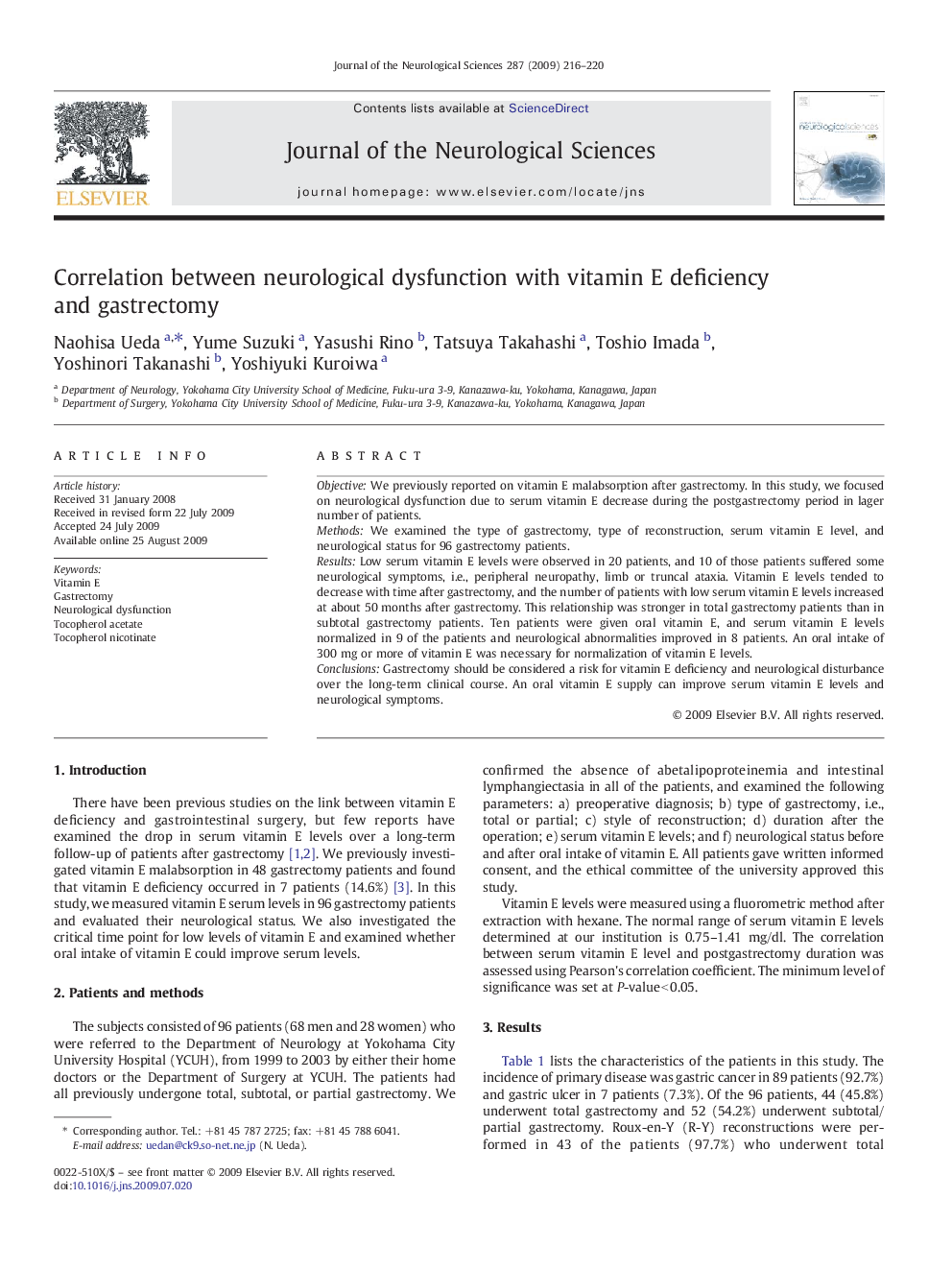| Article ID | Journal | Published Year | Pages | File Type |
|---|---|---|---|---|
| 1914828 | Journal of the Neurological Sciences | 2009 | 5 Pages |
ObjectiveWe previously reported on vitamin E malabsorption after gastrectomy. In this study, we focused on neurological dysfunction due to serum vitamin E decrease during the postgastrectomy period in lager number of patients.MethodsWe examined the type of gastrectomy, type of reconstruction, serum vitamin E level, and neurological status for 96 gastrectomy patients.ResultsLow serum vitamin E levels were observed in 20 patients, and 10 of those patients suffered some neurological symptoms, i.e., peripheral neuropathy, limb or truncal ataxia. Vitamin E levels tended to decrease with time after gastrectomy, and the number of patients with low serum vitamin E levels increased at about 50 months after gastrectomy. This relationship was stronger in total gastrectomy patients than in subtotal gastrectomy patients. Ten patients were given oral vitamin E, and serum vitamin E levels normalized in 9 of the patients and neurological abnormalities improved in 8 patients. An oral intake of 300 mg or more of vitamin E was necessary for normalization of vitamin E levels.ConclusionsGastrectomy should be considered a risk for vitamin E deficiency and neurological disturbance over the long-term clinical course. An oral vitamin E supply can improve serum vitamin E levels and neurological symptoms.
